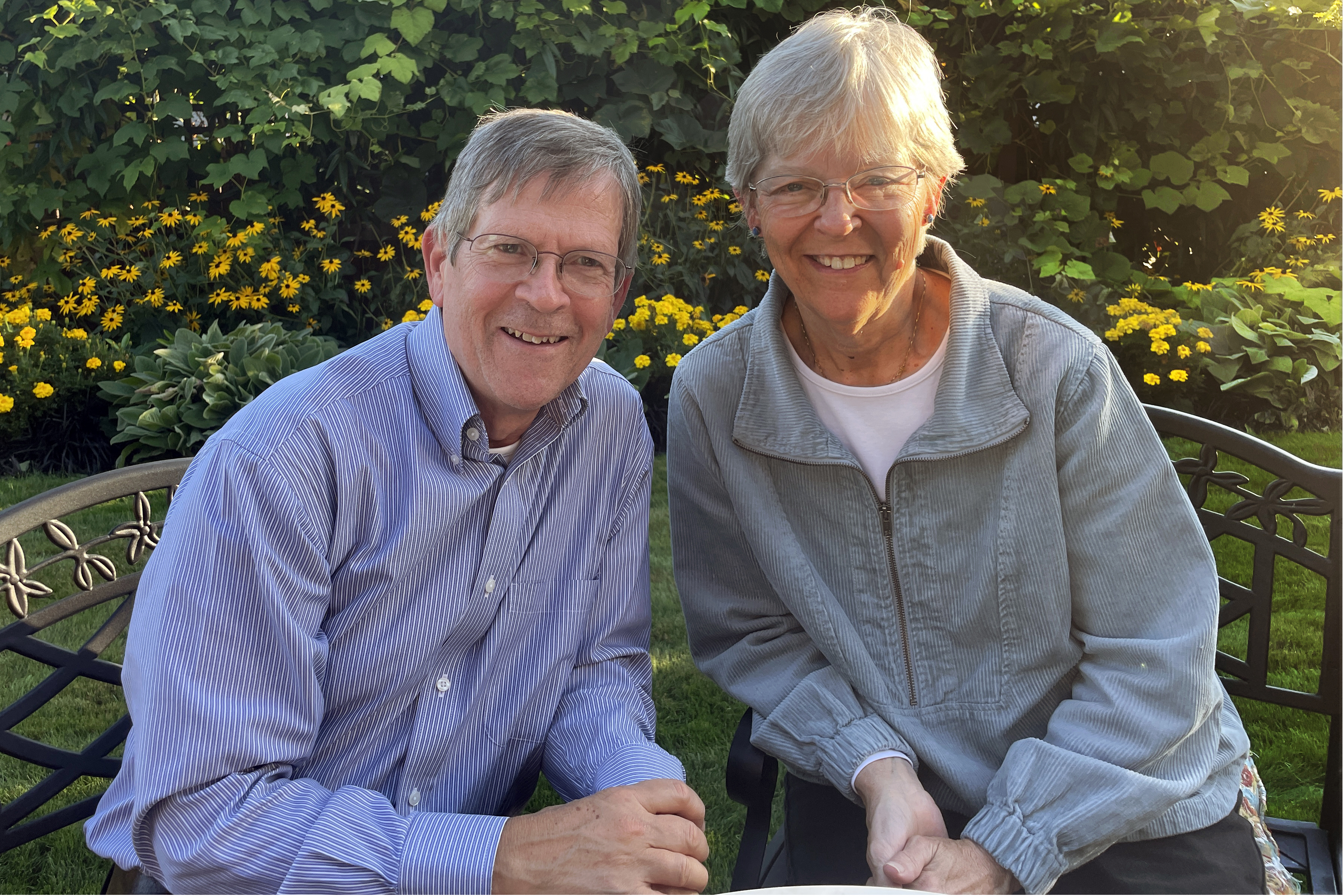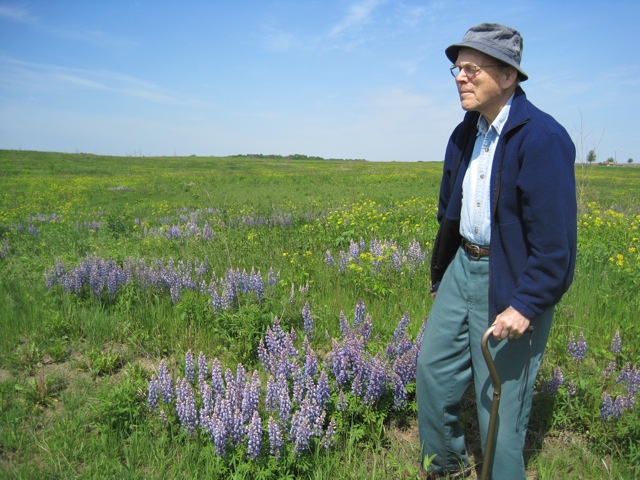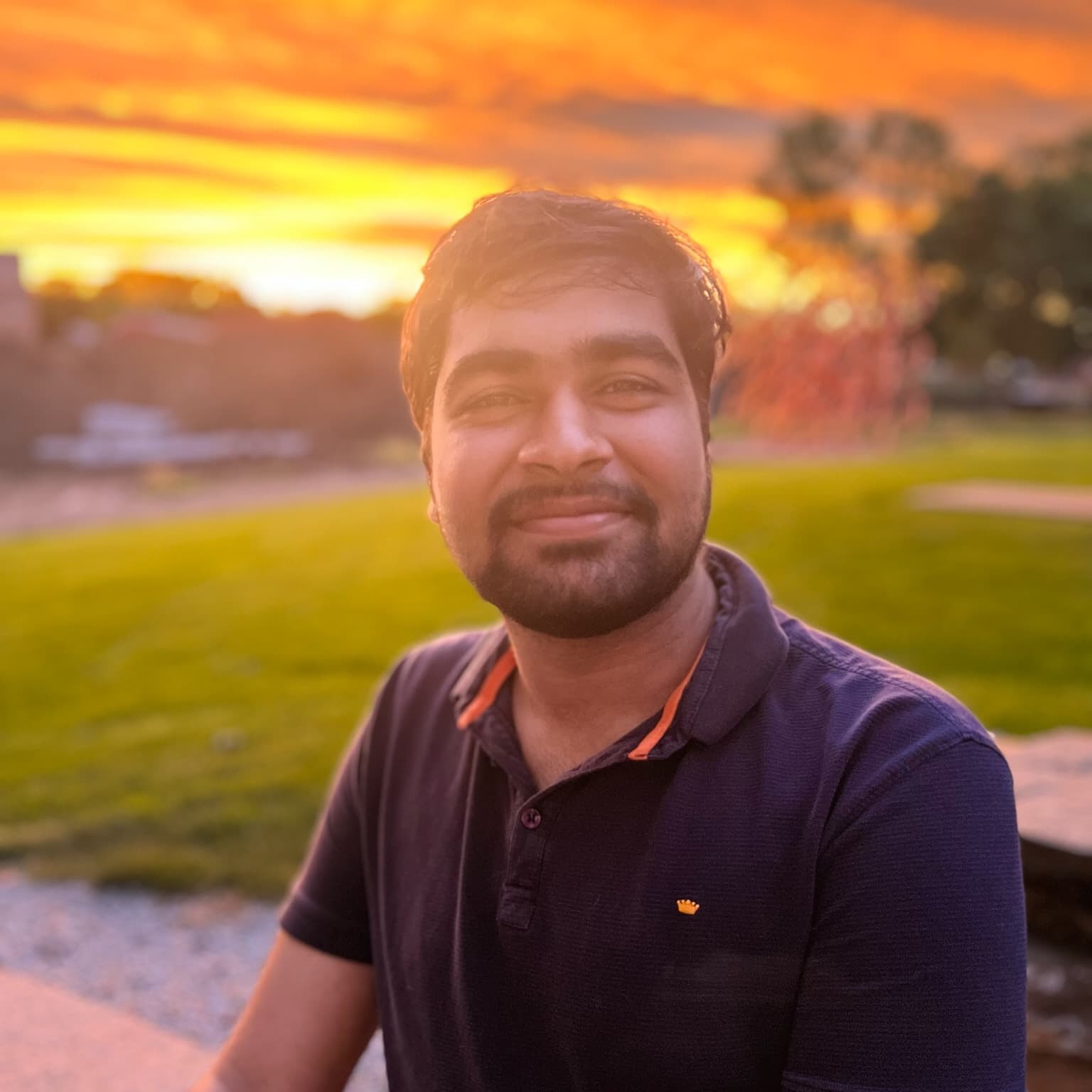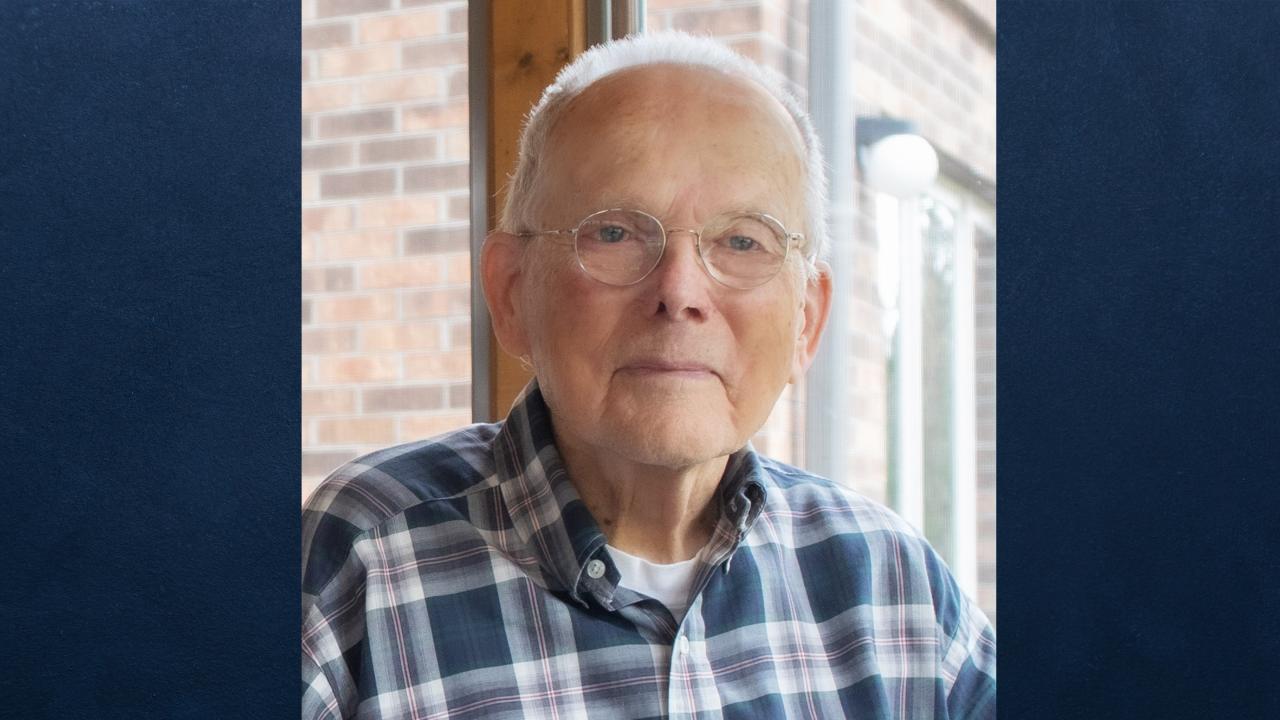In August 2023, Augustana received an estate gift worth $660,000 from Dr. Donald H. Nelson, who passed away seven months earlier. While estate gifts aren’t out of the ordinary, this one was different.
Nelson had no connections to Augustana — he wasn’t an alumnus nor a previous donor. He never married nor had children, so he wasn’t the husband or father of alumni. A question, then, loomed large: Why did Nelson give a significant estate gift to a university with which he had no affiliation?

Enter Cindy and Steve Huseth, Nelson’s niece and her husband — on a quest to answer the same question. Their quest, however, involved searching for that answer 25 more times, as Nelson had listed 26 organizations as beneficiaries of his estate, including Augustana.
“I think he started thinking back through his life — every church, every school, things related to the environment. If they were, at one point, important to him, he included them in his list of beneficiaries,” Cindy said. “Some of (the organizations) know him because he had a relationship with them before he died, and, at a number of the schools, he had already created endowments.
“But, there were four schools, Augustana being one of them, who he didn't have a relationship with at all prior to his death,” Cindy continued. “So, part of my goal is to help introduce him to Augustana and these other schools.”
Nelson, who was born and raised in Minneapolis, Minnesota, retired from his 30-year career as an orthodontist in 1986. After retirement, he developed a deep passion for the environment, particularly the three farms he owned in the Rochester and Northfield areas of Minnesota. Nelson planted and cared for several thousand tree seedlings that he purchased from the Minnesota Department of Natural Resources (DNR).
 Before his passing, Nelson worked with Trust for Public Land, Minnesota Land Trust and the Minnesota DNR to ensure that his farms would be converted into wildlife management areas (WMAs). The three WMAs, totaling 860 acres, are now enjoyed by wildlife and those who visit for recreational purposes. Nelson also donated the proceeds from the sale of the farms to his alma mater, St. Olaf College, as well as Luther College and Northfield Shares to create endowments supporting land-based stewardship, research and education programs.
Before his passing, Nelson worked with Trust for Public Land, Minnesota Land Trust and the Minnesota DNR to ensure that his farms would be converted into wildlife management areas (WMAs). The three WMAs, totaling 860 acres, are now enjoyed by wildlife and those who visit for recreational purposes. Nelson also donated the proceeds from the sale of the farms to his alma mater, St. Olaf College, as well as Luther College and Northfield Shares to create endowments supporting land-based stewardship, research and education programs.
“He wasn't afraid to follow his passions,” Cindy said. “As a family, we never felt like he was really passionate about his career as an orthodontist. So, he retired early. Then, one of his passions was the stock market. That allowed him to follow what I believe was his true passion for the environment. That was who he truly was.
“His faith was also a huge part of him,” added Cindy. “Faith and the environment and trying to combine those two was really, toward the end of his life, what he was all about.”
This is where the Huseths and Augustana began to put some of the pieces of the estate gift puzzle together. Augustana, an institution inspired by Lutheran scholarly tradition, has put an emphasis on enhanced sustainability in recent years. Within AU’s strategic plan, Viking Bold: The Journey to 2030, is an enduring commitment to environmental sustainability through relevant academic offerings, initiatives and responsible investments that promote sustainability in campus operations.
In 2007, as Nelson considered the donation of his farms, he wrote in his statement of purpose, “It is my desire that these farm properties shall be used in perpetuity exclusively for environmental education, research and recreation … to encourage young students, nurturing their interest and commitment to learn more about our environment.”
Therefore, when Augustana received Nelson’s estate gift, it was designated to provide resources to student-led environmental sustainability initiatives — just as Nelson dreamed.
Even though Augustana and the Huseths will never know exactly why Nelson generously chose AU to be one of his benefactors, his legacy will extend far into the university’s future, as will the gratitude.
“He was to be greatly admired,” Cindy said. “He was a very caring and loving man.”
Legacy Powers Future of AU
Augustana students and their sustainability initiatives have already seen the impact of Nelson’s estate gift.

In 2022, when Vedant Thakkar ‘24 was an Augustana Student Association (ASA) senator, the finance committee discussed projects it might want to tackle. The idea of solar panels on campus came up — one that had been brought up by different senators many times in the past.
“I've always had an inclination toward sustainability projects and solar panels,” Thakkar, who graduated in January, said. “I had an opportunity to do it, so I took on that opportunity.”
Thus began Thakkar’s nearly 2-year journey to get solar panels on campus, including researching installation companies, collecting student feedback, discussing feasibility, collaborating with Augustana Facility Services and other stakeholders, as well as writing a proposal.
The panels, expected to be installed in late spring or early summer, will be located on the south side of the Froiland Science Complex (FSC), near the greenhouse. There will be three 4-by-8-foot panels that will likely make up one large panel facing 33rd Street.
“My goal with this project was to get the ball rolling,” Thakkar said. “With having a few solar panels on campus, it’s this foot-in-the-door idea — we start one project, and hopefully that inspires and offshoots into more projects. That's why, for me, it was important to get this done.”
While the solar panels are being funded in large part by ASA, the remainder of the funds will come from Nelson’s estate gift as the project has been a student-led environmental sustainability initiative. And, this student-led initiative was a highlight of Thakkar’s AU experience.
“Because of this project, not only was I able to pivot away from my major, I was able to learn a lot of essential life skills, like how to communicate professionally and think strategically,” said Thakkar, a research specialist at Sanford Research in Sioux Falls. “That helps me today in my work because in science, we operate on grants and now, I understand what it takes to convince grant committees to provide funding for research projects. The experiences I got from this project can be translated directly to the understanding of the administrative and financial parts of research.
“That's what I appreciated is having these kinds of options; it allows students to expand their horizons beyond their major,” Thakkar continued. “(The project) gave me a crucial skill set to survive and thrive in the real world.”
